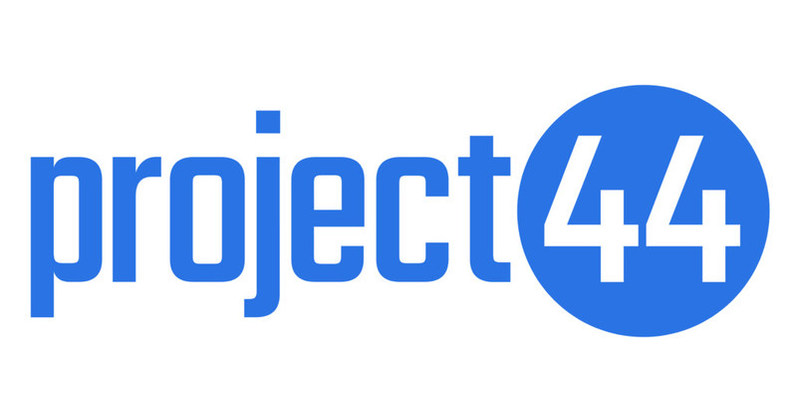Moratorium On State AI Regulation Draws Some GOP Fire, But Also Praise

Both the House and Senate versions of the One Big Beautiful Bill Act include provisions to preempt ... More state regulation of AI.
gettyAs President Donald Trump and congressional Republicans seek to extend the Tax Cuts and Jobs Act’s (TCJA) personal income tax rate cuts as part of the One Big Beautiful Bill Act (OBBBA), how to deal with the state and local tax (SALT) deduction cap remains a key point of contention. The House-approved version of OBBBA raises the TCJA’s $10,000 per household SALT cap to $40,000 but the Senate proposal keeps it at $10,000. The SALT cap isn’t the only part of OBBBA that has divided some Republicans.
Opponents of the TCJA’s SALT cap often accuse it of targeting blue states, which tend to have relatively higher tax burdens and are where most SALT beneficiaries live. The same criticism, however, cannot be leveled at the OBBBA provision prohibiting states from regulating artificial intelligence (AI), a proposal that has been the subject of some GOP criticism. Congresswoman Marjorie Taylor Greene (R-Ga.), for example, voted for OBBBA but has since derided the moratorium on state regulation of AI included in the bill.
“This needs to be stripped out in the Senate,” Greene wrote about OBBBA’s AI preemption provision in a June 6 post on X. “When the OBBB comes back to the House for approval after Senate changes, I will not vote for it with this in it.”
“We should be reducing federal power and preserving state power,” Greene added. “Not the other way around.” Neil Chilson, former chief technologist at the Federal Trade Commission, responded to the sentiment expressed by Greene in a June 10 X post:
“A lot of ‘conservatives’ seem desperate to have California (a state that is having some difficulties governing itself right now) regulate how the US does AI,” Chilson wrote, adding that “China thanks you.”
The sort of progressive state regulation of AI development that Greene is vowing to defend is now on display in Albany, where the New York Assembly and Senate recently passed the RAISE Act, legislation that would impose new regulations on companies, both large and small, that deal with AI. That legislation is now on Governor Kathy Hochul’s (D) desk awaiting her consideration.
“The RAISE Act would create a legal minefield for New Yorkers trying to innovate by imposing vague, unworkable standards that punish developers instead of bad actors,” noted a letter that NetChoice, a trade association of online businesses, sent to Governor Hochul on June 17. That letter, which urged Hochul to veto the RAISE Act, added that the bill “would stifle AI tech development, harm economic competitiveness and undermine free expression.”
Bipartisan opposition to the AI preemption provision in OBBBA is not surprising. Though capping the SALT deduction disproportionately affects blue state taxpayers, OBBBA’s federal preemption of state AI regulation would have implications for red and blue states alike. That’s because governors and lawmakers in red states have proved just as inclined as their blue state counterparts to propose state-level regulation of AI.
Take Texas, commonly viewed as one of the reddest and most conservatively governed states in the nation, and for good reason. Texas, where Republicans control every statewide office and both chambers of the legislature, is one of only eight states that does not impose an income tax. It’s a right-to-work state where leading politicians tout freedom, liberty, and limited government. It’s also a state where Republican lawmakers have been seeking to regulate AI.
In late 2024, Texas Representative Giovanni Capriglione (R) introduced the Texas Responsible AI Governance Act (TRAIGA), legislation to establish a state-level regulatory regime affecting companies operating in the AI space. Following its introduction, TRAIGA was quickly met with opposition from free market organizations.
“Though well-intentioned, this draft bill imposes restrictive regulations and burdensome compliance costs that risk stifling Texas’s thriving artificial intelligence (AI) sector,” a coalition of conservative organizations wrote in a joint letter to Texas legislators. “Texas has a unique opportunity to be a leader in AI innovation, but TRAIGA’s approach threatens to undermine that potential. It would also be detrimental as a policy framework for other states or the federal government.”
In response to pushback, Representative Capriglione scaled back TRAIGA, reworked it, and refiled it as House Bill 149. HB 149, which ultimately passed both chambers, is more narrow in scope than the original version of TRAIGA, with HB 149 focusing on government utilization and development of AI.
“Under the bill, government agencies will be required to disclose to consumers when they are interacting with an AI system,” noted a Transparency Coalition blog post on HB 149. “Systems will be prohibited from ‘dark pattern’ interaction, or any ‘user interface designed or manipulated with the effect of substantially subverting or impairing user autonomy, decision-making, or choice.’”
“TRAIGA also bans the government from using AI to create ‘social scores’ for users, and from using biometric data without consent,” the Transparency Coalition added. “Government agencies also are prohibited from discriminating against users based on their political viewpoints, as well as from blocking, banning, removing, deplatforming, demonetizing, or otherwise limiting users.”
Aside from Texas, legislation seeking to regulate AI has been introduced in most state capitals, in both blue and red states. It’s not only free market voices and tech industry leaders who are expressing concerns about the adverse effects that would stem from a 50-state patchwork of overlapping and conflicting AI regulations.
“I just worry about every state going out and doing their own thing, a patchwork quilt of regulations, Connecticut being probably stricter and broader than most, what that means in terms of AI development here,” Governor Ned Lamont (D-Conn.) said last month. Shortly after Colorado lawmakers enacted their AI bill in 2024, Governor Jared Polis (D-Colo.) urged congress to enact federal legislation preempting state regulation of AI.
“There are better ways for states to address AI concerns than a heavy-handed, top-down, paperwork-intensive regulatory approach,” Governor Glenn Youngkin (R-Va.) wrote in the veto statement explaining his decision to reject an AI regulation bill passed by the Democrat-led Virginia Legislature. “The role of government in safeguarding AI practices should be one that enables and empowers innovators to create and grow, not one that stifles progress and places onerous burdens on our Commonwealth’s many business owners.”
Proponents of federal preemption of state AI regulation, which includes many conservatives who advocate for pushing most policy decisions down to the states, believe that a patchwork of 50 separate state regulatory regimes for AI would put the U.S. at a disadvantage when it comes to development of AI. Vance Ginn, president of Ginn Economic Consulting and former economist at the White House Office of Management and Budget, says there is a precedent for a federal moratorium on state AI regulations. That precedent is the Internet Tax Freedom Act of 1998, which was passed by a GOP-run congress and signed into law by President Bill Clinton.
“That federal pause on state taxes for internet access helped fuel the digital revolution,” writes Ginn. “AI deserves the same breathing room. If the moratorium or something like it doesn’t happen, America risks ceding the future to countries like China, where communist governing directs resources rather than profits.”
Those remarks from Ginn, who served in the first Trump administration, sound a similar note to those recently delivered by a member of the second Trump administration. In an address to the AWS Public Sector Summit, David Sacks — the venture capitalist, technologist, and first ever White House AI czar — described the state-level efforts to regulate AI as “fear-mongering”, adding that a 50-state patchwork of varying and conflicting AI regulatory regimes across the U.S. could “end up killing these things in the cradle.”
“If we had taken this approach towards the internet, if we had basically had a fear-based approach towards regulation and passed hundreds or thousands of regulations, I don’t think the U.S. would become the dominant country in the internet,” Sacks added, calling the internet “one of the crown jewels of the American economy.”
There is bipartisan agreement about the need for federal preemption of state AI regulations and there is also bipartisan opposition to such a federal moratorium. The matter will be decided, however, by Republicans on Capitol Hill. “Republicans have a pretty straightforward choice on AI,” writes Zach Lilly, deputy director of state and federal affairs for NetChoice, noting that the choices are “follow Trump’s lead and use their Congressional majority to set a light touch approach, or miss the moment and let California regulate it into oblivion.”












